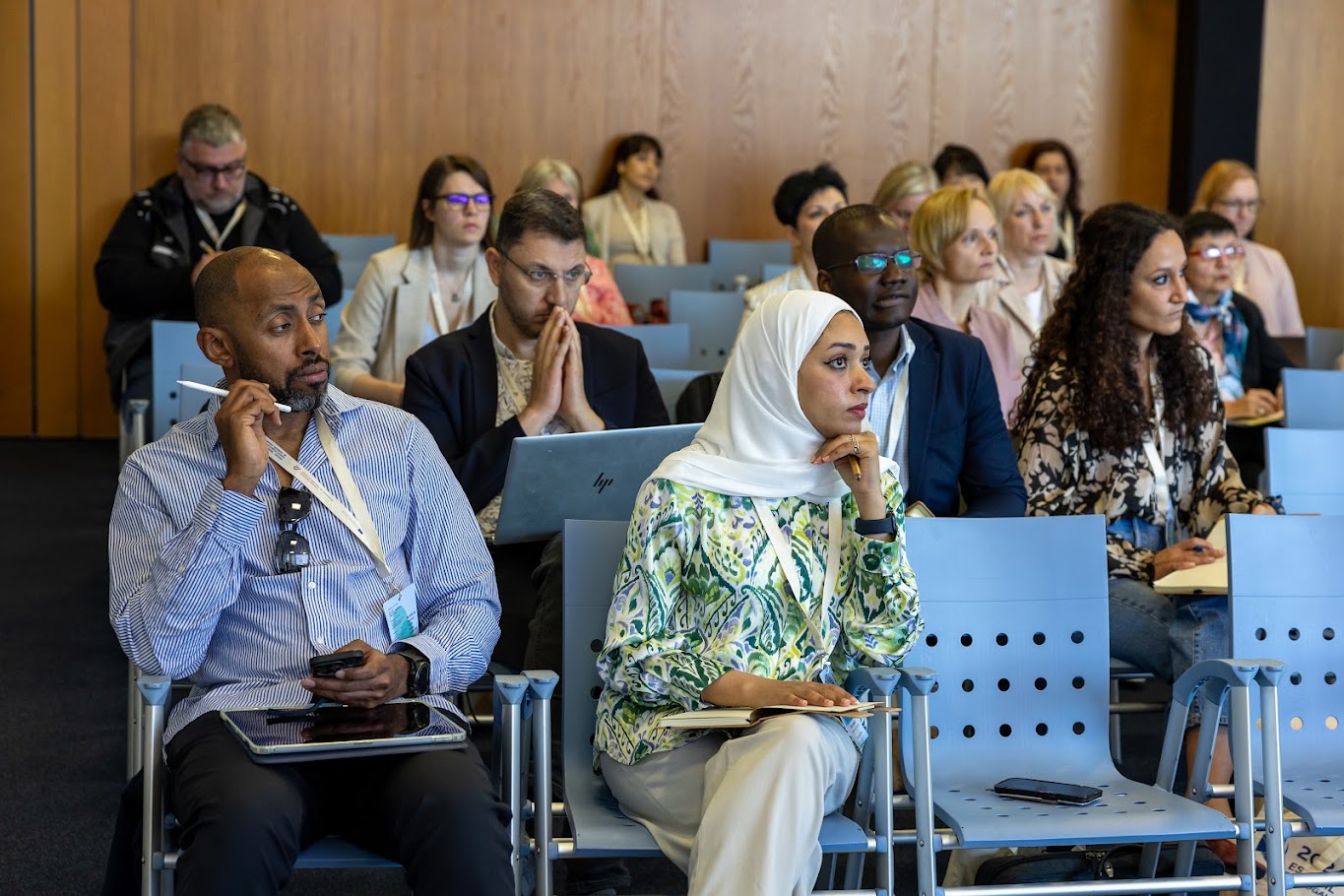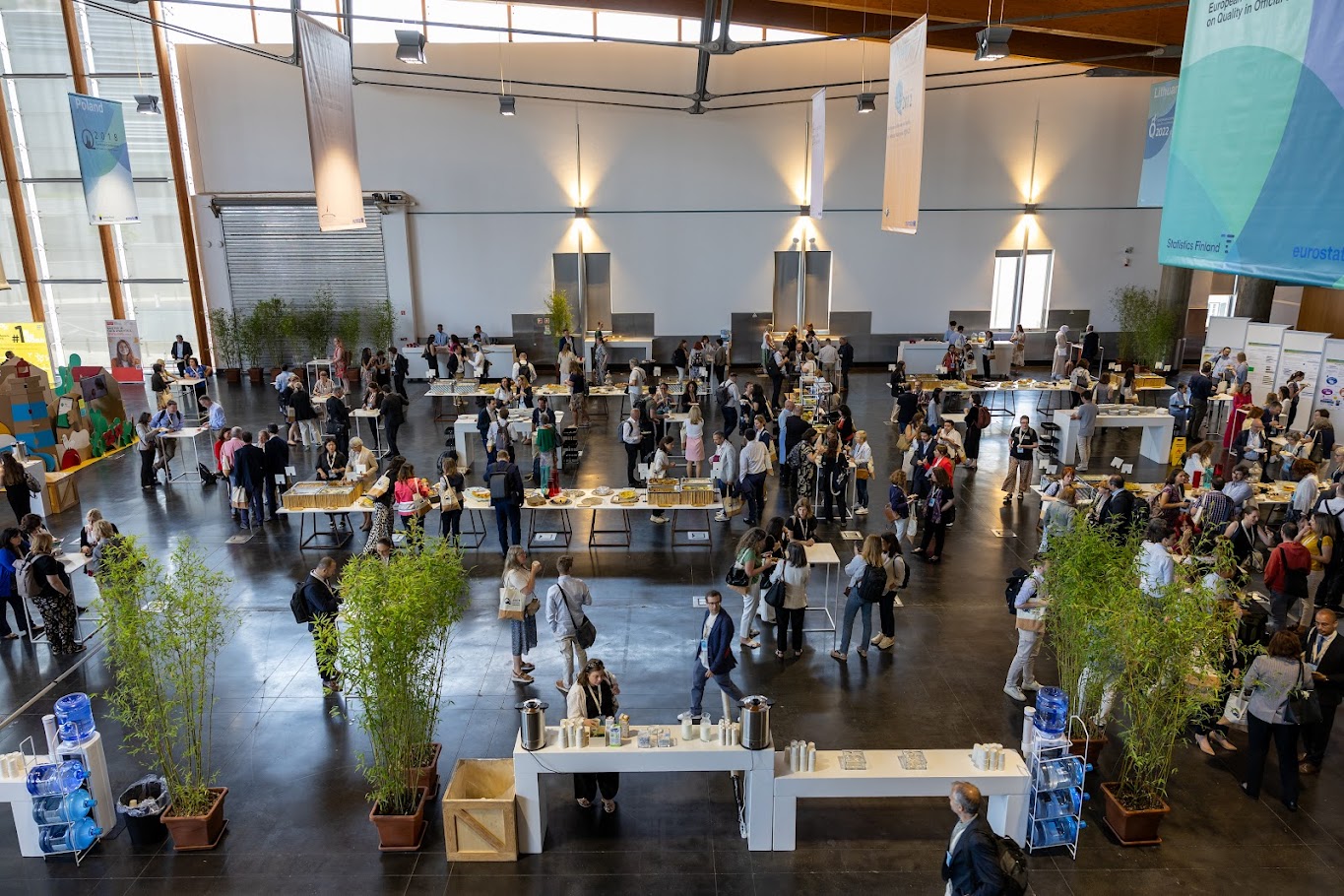11th European Conference on Quality in Official Statistics (Q2024)
04/06/2024 - 07/06/2024

FAO Statistics colleagues are attending the 11th European Conference on Quality in Official Statistics (Q2024) in Estoril (the Greater Lisbon region) from 4 to 7 June 2024.
Following a longstanding quality-driven tradition in the European statistical community, this conference will gather statisticians, academics, and external stakeholders to foster the dissemination of knowledge and research on emerging issues related to quality in official statistics. By bringing diverse stakeholders together, Q2024 aims to enhance and improve cooperation between official statistics and the scientific community — in which students play a significant role — and to promote closer dialogue between users and producers.
Q2024 will focus on the role of official statistics as a pillar of democracy and on some of the most challenging issues currently faced by the official statistics community. The conference topics aim to be broad enough to cover the diversity of challenges faced by the statistical community while also addressing the most relevant dimensions within the field of quality. Q2024 will explore how institutional frameworks and the role of innovation and research impact on quality in official statistics, and it will also focus on the power of data and NSIs’ capabilities to harness opportunities in a challenging environment.
Bearing in mind the importance of capacity-building in previous editions of the conference, a variety of engaging and informative one-day training courses will be held on 4 June 2024. These courses will be organised around four main pillars: quality management, innovation/data science/AI, dissemination/communication, and the integration of administrative and privately-held data.



FAO participation at the 11th European Conference on Quality in Official Statistics (Q2024)
Session 4 - Quality management (Wednesday, June 5, 2024) - More information
Management of quality in a changing data ecosystem: the case of FAO
Authors: Mr Ngarsaim Espoir Beram, Ms. Valerie Bizier, Ms Aida Khalil Clara (FAO Statistics Division, ESS)
The data ecosystem is being increasingly affected by the emergence of new data sources, reshaping
statistical business processes, and data and statistics quality management. Indeed, these dynamics
involve opportunities for statistical advancement (increased timeliness, granularity, strengthened
decision-making) as well as concomitant risks (data privacy, data integrity and statistics quality, data
access and sustainability of data sources) that need to be addressed.
To ensure that the FAO remains relevant in this rapidly changing environment, a paradigm shift
towards much closer integration of data and statistics has taken place, in line with the Strategy for
the Modernization of Statistics. This led to the establishment of a Data Coordination Group (DCG)
with the mandate to ensure a strategic and technical coordination mechanism with recognized
authority to make decisions of corporate relevance for data for statistics (e.g., big data) and statistics.
The commitment for data and statistics integration is also embedded in the new Data and Statistics
Quality Assurance Framework (SDQAF), which ensures a proper use of alternative data sources to fill
data gaps and adherence to the highest quality standards of the resulting statistical products.
An additional corporate Standard on the Acquisition and use of non-statistical data sources for
statistical purposes, has been developed to address quality aspects specific to different types of input
data (big data classes), providing tailored recommendations and guidelines to statistical units. While
focused on statistical purposes, this standard can be used to guide experimental statistics analyses,
thus encouraging science and research. It also includes provisions on cases where FAO acquires
data through a third party or partnerships, thus compensating for the lack of internal resources and
promoting knowledge sharing. The Standards on Imputation and Quality indicators have also been
revised to reflect the paradigm shift and include implications for the definition and computation of
coverage errors and accuracy.
Lastly, the revised Quality Assessment and Planning Survey (QAPS) aiming to assess the compliance
of FAO statistical activities with SDQAF principles was implemented in 2023. It provides insights
about progress achieved on the quality at both process and output levels and highlights areas of
improvement. Also, the systematic review of reference metadata against the recommendations of
the revised Standard on Metadata dissemination contributes to improve the accessibility and clarity
of FAO statistics.
This paper presents the tools and mechanisms put in place in FAO to ensure the production of high-
quality statistical outputs while integrating non-traditional data sources into statistical processes.
